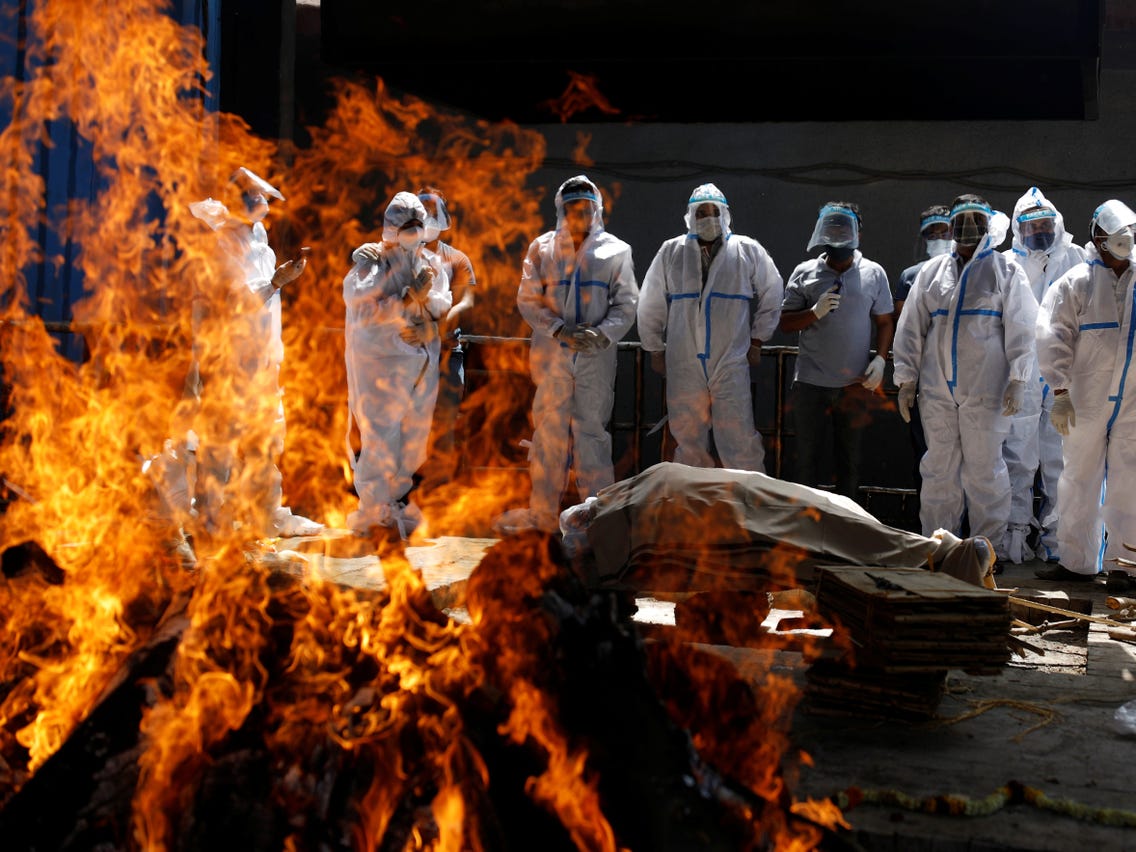I can still remember how Shirley Jackson’s short story, “The Lottery”, left in me an indelible horror. First published in the New Yorker after the Second World War, this story gained fame for its shocking twist in depicting the danger of blindly following traditions. Despite being horrified, I am still awed by the author’s masterful use of literary devices – particularly foreshadowing – in writing one of the most enduring pieces in literature. The Lottery taught me a very important lesson: the plot always makes more sense in retrospect. We will realize later how the details are tied and connected; after all, the ending is foreshadowed only if we take heed of the signs.
There is so much to learn in literature as we navigate into these uncertain times. We are now facing conflicts of all sorts – humanity against humanity, against nature, against itself. In this way, we are perhaps turning into a tragedy. But ours is an unfinished story we collectively author. Perhaps, if we only take notice of the signs of current events, we can avert a brewing cataclysm.
Critical Crossroads
The landmark report of the United Nations Intergovernmental Panel on Climate Change (UNIPCC) recently raised the alarm as it becomes clear that we are falling short in handling global warming. We are indeed in a climate crisis and the abysmal state that looms ahead seems to dwarf the current impact of the pandemic. It appears, however, that Covid-19 is a litmus test of humanity’s capacity to confront global existential challenges. With our present response, we should be worried.
Code red for humanity. The alarm bells are deafening, and the evidence is irrefutable.
Antonio Guterres, UN Chief
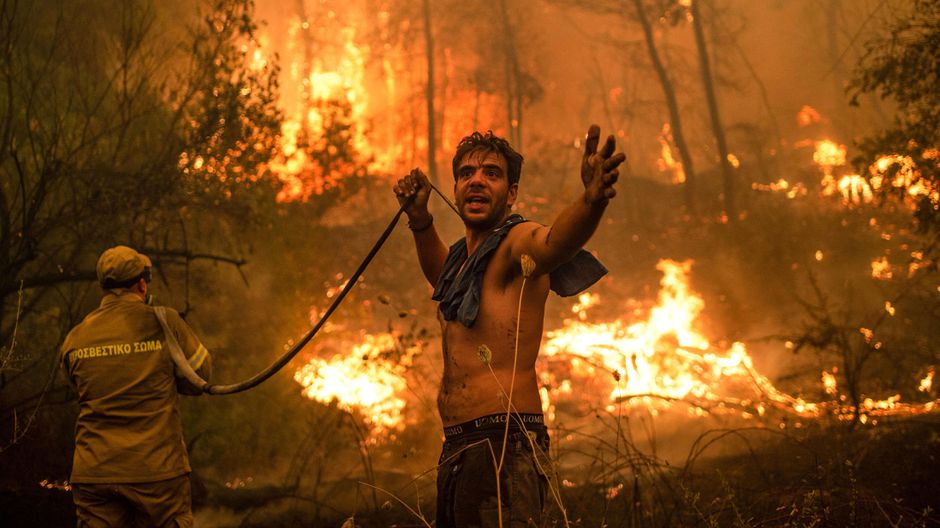
At the start of the outbreak, the common reaction was to set restrictions on mobility. After all, the structures and drivers of rapid globalization had also become the superhighway that facilitated the fast spread of the disease worldwide. Thus, pushing the brakes of globalization was imperative to slow down the pandemic’s spread. However, with states tightly guarding their borders, it also became apparent that the emerging post-pandemic world order would be leaning towards isolationism. Surveying the landscape of contemporary affairs, some signs starkly show.
First, the pandemic reinforced the role of the state. Pre-pandemic commentaries on globalization strongly highlighted the lessening relevance of the nation-state in a hyper-globalized world. However, Covid-19 is a major blow to this trend, as people are now seeking the protection of their governments, and sentiments against globalization are growing. Analysts in international relations construed that “Covid-19 will create a world that is less open, less prosperous, and less free” and that the emerging post-pandemic order will be “less global” and “more isolated”. What we are seeing now is the resurgence of the nation-state. Nationalism per se is a double-edged sword. It can be a force for good when directed towards the realization of shared national responsibilities in ensuring global social justice. However, things can get ugly when this sentiment is instrumentalized for selfish gains – compromising any attempts for collective action and endangering our future.
The pandemic will strengthen the state and reinforce nationalism. Governments of all types will adopt emergency measures to manage the crisis, and many will be loath to relinquish these new powers when the crisis is over
Prof. Stephen Walt
Second, although the pandemic created spaces for global collaboration, we were also confronted with an increasing rivalry between global powers trying to capitalize on the pandemic for dominance. Vaccine diplomacy became the name of the game wherein powerful states instrumentalized life-saving jabs for political advantage. In hindsight, saving lives became secondary to strategic national interests in this multipolar world.
Third, the present health crisis unveiled brands of leadership that toyed with the lives of people. What anti-vaxxers, anti-maskers, and climate deniers have in common is the irrational denial of scientific facts despite immense and compelling evidence. This becomes increasingly problematic when these ideas are espoused by national leaders who act like mad captains – refusing the power of modern navigational tools in the turbulent seas, and thus leading their ships to the brink of their own destruction. The problem is that the virus (and the climate emergency) do not care about our opinion at all. Denying the problem does not solve it either, it rather exacerbates the situation further. It cannot be overstated that in the face of global challenges, competent, collaborative, and sensible leadership across countries is so crucial in bringing humanity out of the storm.
Fourth, alongside the outbreak is the spread of a pandemic of hate. It can be reckoned how Covid-19 has fomented racism and xenophobia, often violent, directed against Asians and people of Asian descent. What started as an anti-Asian sentiment in the West has developed into an anti-immigrant nationalist mood in different places of the world, even among Asian countries.
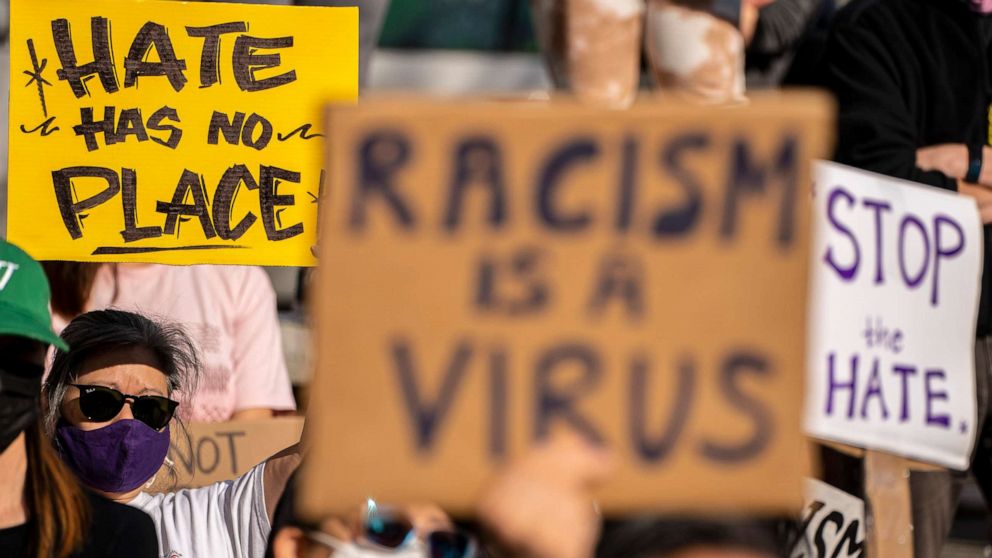
In hindsight, we are essentially facing a conundrum: while the global nature of problems requires collective action, we find it hard to rally humanity against a common existential problem. The virus has been successful to some relative degree in reinforcing existing divisions and this can prove a challenge in fostering global solidarity.
The Plot Thickens
The pandemic is a massive tremor that has shaken existing cracks and points of rupture upon which modern society is built. It has also exposed deep-seated systemic problems that cause the unequal distribution of risks and vulnerabilities in our societies. The sad state of our vaccine roll-out is fundamentally an extension of the ugly face of economic inequality.
In a commentary on the global vaccine distribution, Nick Dearden construed that while the supply of vaccines gets better, inequality in the distribution also gets worse. By the end of this year, we are expecting a surplus of 1.2 billion vaccine doses in wealthy countries despite having supply problems in the developing world. A report from Amnesty International shows that “Out of 5.76 billion doses administered worldwide, a paltry 0.3 percent have gone to low-income countries, with over 79 percent going to upper-middle and high-income countries.” It further added that “despite calls to prioritize and collaborate with COVAX Facility, the international instrument aiming to ensure a fair global vaccine allocation, some of the assessed companies have continued to stock up vaccine supplies for states known to be hoarding the vaccine”. It seems that some privileged few are willing to hoard the bread, despite the rest of the world starving. The problem is, the bread can soon get spoiled.
While some developed countries are now administering booster shots, most in the developing world are still waiting for the first jab. But the virus mutates, and mutation can only be prevented by outrightly ending transmission – hence, vaccines offer a way out, if only they were made available accordingly.
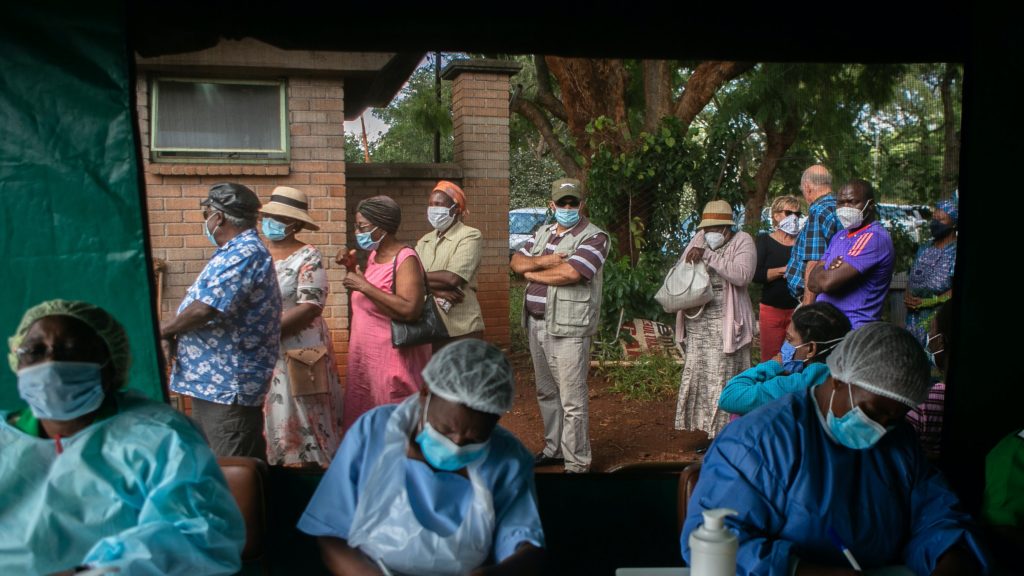
What we currently know is that virulent mutations reduce the efficacy of available vaccines. Thus, hoarding is counterproductive, even abominable. As more virulent mutations potentially appear in the unvaccinated world, present vaccines will be rendered less and less effective. Only vaccinating the highest number of people in the shortest possible time can turn these tides. Thus, the key to seeing the end of the pandemic is sharing, not hoarding. If the latter prevails, soon the hoarders will realize they are sitting on top of a stockpile of virtually impotent liquid made possible through denial on the access of life-saving jabs, while the rest of the underdeveloped world is being rampaged by the virus on a horrendous scale. This will be accounted in the ledger of history as a failure of conscience.
Sadly, this problem with vaccine distribution is an extension of an overarching systemic problem in the global economy. Despite enormous economic growth, driven by the sacrifice of nature and exploitation of the labor of common people, inequality within and between countries is staggeringly high. Benefits are lumped into the hands of the few, while the costs – in the form of ecological backlash – are disproportionately impacting underprivileged people in underdeveloped countries. Indeed, the global poor bears the brunt of global problems. Be it the effect of the pandemic or the looming climate crisis, inequality is deadly.
This begs the question: can we entrust our future to an economic system that works well in extracting wealth, but is, at its very core, morally decrepit and bankrupt?
Mother Elephant in the Room
I am afraid that we often lose focus on the bigger picture. Decoupling the pandemic and the climate emergency is missing the mother elephant in the room while setting our focus solely on her calf. As I argued previously, future strategies to combat outbreaks should hinge on the overarching framework of environmental protection and climate justice. It is the most proactive response aside from increasing our understanding of pathogens and improving the capacity of our healthcare systems. After all, disease outbreaks are essentially ecological issues.
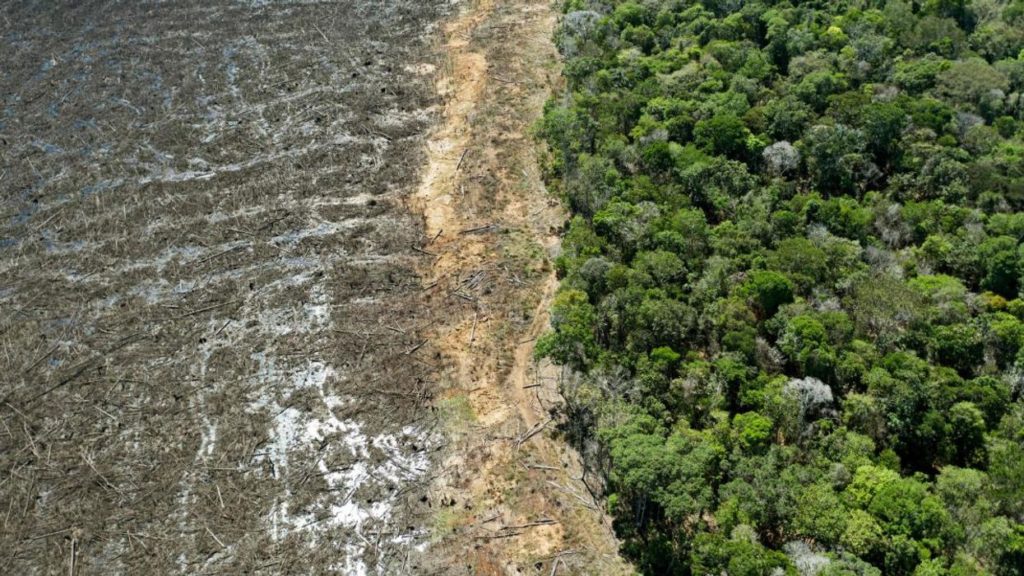
Here are my two cents: first, ecologists already warned that this is not yet the “big one” and the looming climate disaster increases the risk of future outbreaks. Human encroachment into previously untouched ecosystems increases the risk of zoonotic transmission – like that of SARS-COV-2. Second, the unprecedented melting of ice sheets and glaciers caused by global warming risk the release of ancient frozen pathogens into nature. Thus, humanity must take cognizance of this reality in charting a sustainable post-Covid-19 recovery. Bouncing back better from the negative economic effects of the pandemic means getting rid of the parts of our economy that sacrifice lives and nature for profit altogether.
A Case for Global Cooperation
What we need now is a collective consciousness of a common problem that would pave the way for collective action. However, it seems that the current global political and social climate may be ill-fitting in confronting the looming greater (if not the greatest) existential challenge ahead.
The science behind climate change unequivocally explains that the climate emergency will unleash tremendous ecological backlash – ranging from rising sea levels, to heatwaves, stronger typhoons and cyclones, droughts, and famines, among others – to the broader populace. Such a scale of externality can overwhelm many states that do not have the adaptive capacity to cope up with these challenges, given the adverse impact of the pandemic. The greatest risk is state failure – as this will further threaten both regional and global security. Therefore, we must realize that averting this catastrophe is, after all, consistent with the national interest of all states.
As such, Covid-19 and the climate emergency should strengthen our global cooperation now more than ever. Remember that these problems know no borders. What we need is the concerted effort of states. This makes a strong case for multilateralism.
Unfinished Story
Here’s an analogy. If we throw a frog into a boiling pot of water, chances are high that it will survive compared to a frog put in warm water that was slowly brought to boil. The immediate reaction of the former is to survive, while the latter complacently adapts to the temperature of the water until it is too late to take the ultimate leap, thus boiled to death.
It is apparent that the pandemic is a boiling pot. It happened abruptly but it forced humanity to immediately adapt. Climate change, on the other hand, is a gradual process, and despite calls for action spanning for decades, our actions are too unambitious, too full of setbacks, too full of excuses – until we may find ourselves at such a time where it’s already too late.
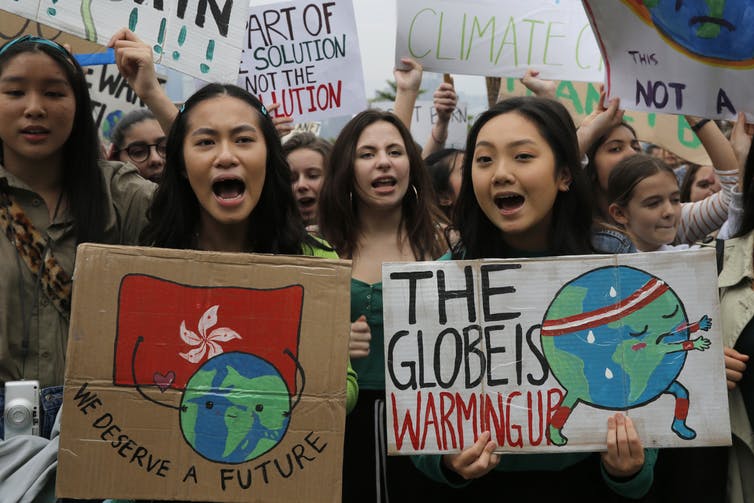
The evidence: a pandemic, our global reaction, the present turmoil, scientific evidence, and shared experiences. We should heed the signs – after all, the conclusion that awaits us will depend on the precedents we choose to make. Ours is an unfinished story we collectively write every day. I am still both awed and bemused about how a single chain of viral transmission set the world on its heels. It proves to me two things: that one is significant, and that we are more deeply connected than it appears. There is still so much we can do if we act with urgency.
This is an appeal for global solidarity, a plea to the conscience of humanity. The nation-state remains one of the myths that we need to survive. What we must do is pressure our leaders in taking serious actions in confronting climate change. At the individual level, we must personalize this issue – since, in the most literal sense, the future lies in our hands. Global action can only be made possible with locally-driven initiatives. For a start, we must become the bearers of the narrative that there is a huge and urgent problem that requires a comprehensive solution – the internet is after all a powerful platform to shape discourse. This must also be coupled with meaningful action on the ground – by binding forces with causes and organizations that advance climate justice. It is high time to explore your local setting for such causes – if there is none, take the lead as a personal challenge.
We are at a critical crossroads and the greatest danger is being divided at the moment when unity is needed – now more than ever. Social distancing should not set our hearts apart from humanity’s common fate.
IVolunteer International is a 501(c)3 tech-nonprofit registered in the United States with operations worldwide. Using a location-based mobile application, we mobilize volunteers to take action in their local communities. Our vision is creating 7-billion volunteers. We are an internationally recognized nonprofit organization and is also a Civil Society Associated with the United Nations Department of Global Communications. Visit our profiles on Guidestar, Greatnonprofits, and FastForward.
